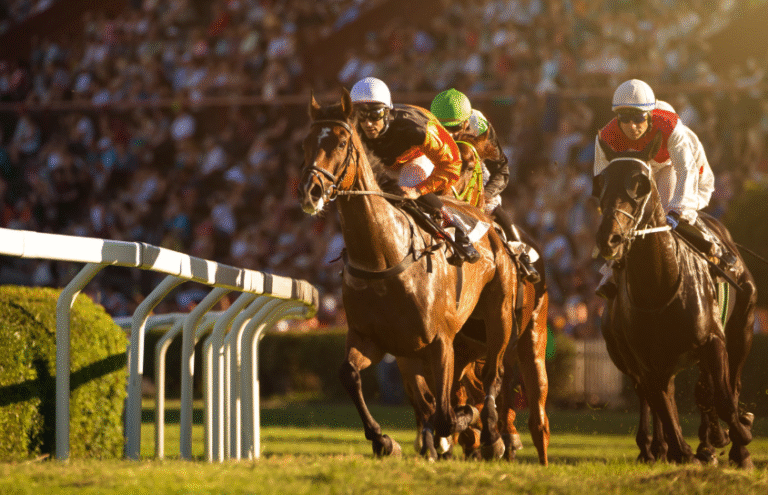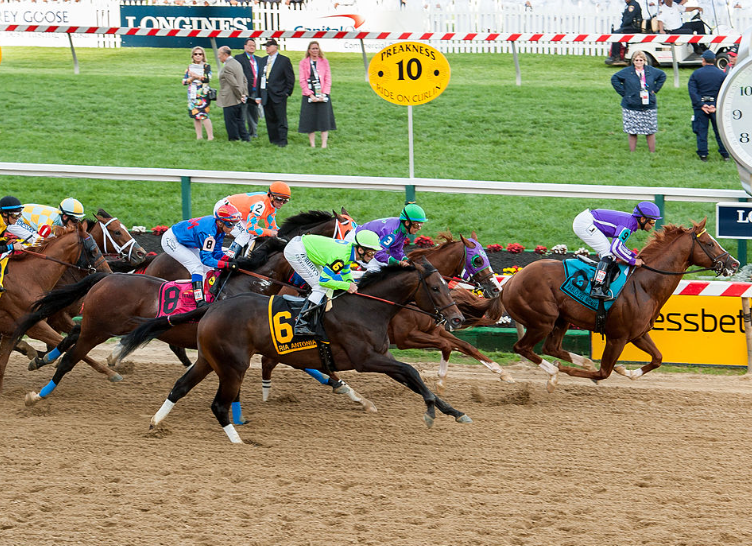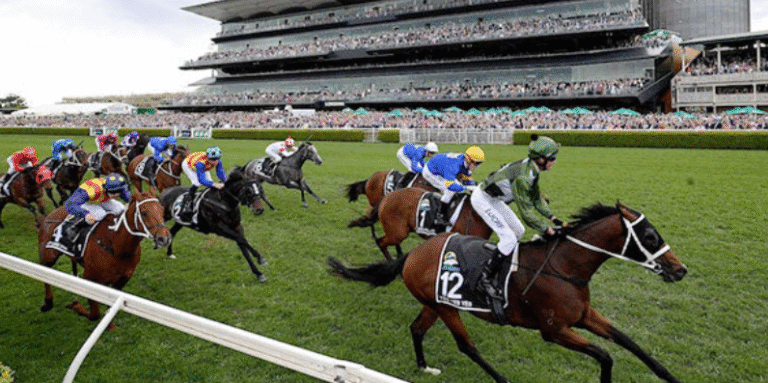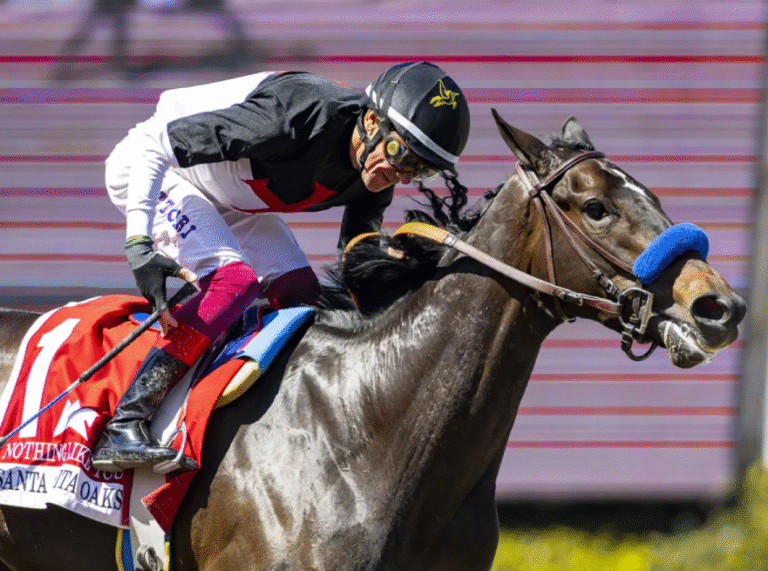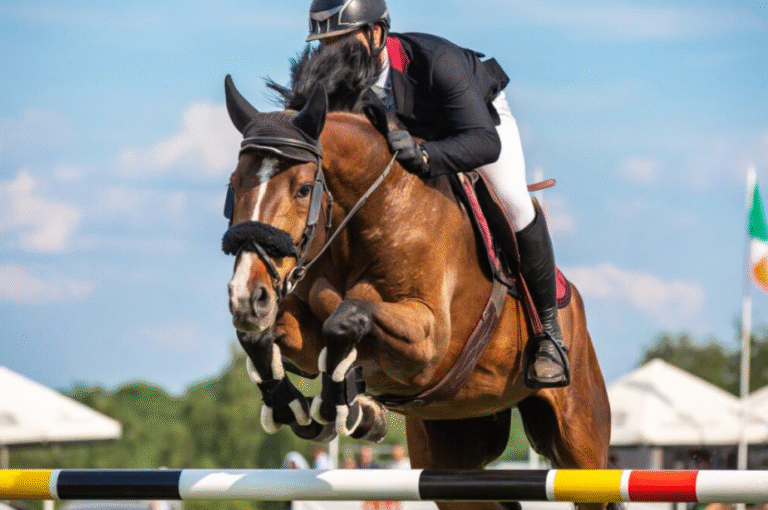Top 10 Horse Racing Myths Debunked
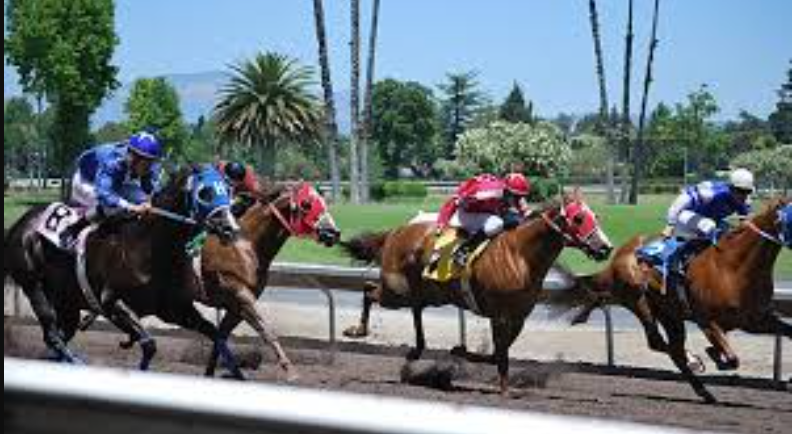
Horse racing is often shrouded in misconceptions that can mislead both fans and bettors. Many believe that a horse’s color or its emotional state directly influences performance. Others assume that only wealthy individuals engage in the sport or that all racehorses receive identical care. These myths can distort the understanding of this complex world. What truths lie beneath these widely held beliefs? The answers may surprise those who think they know the game.
Horses Only Run Fast When They Want To
While many might believe that horses only run fast when they feel motivated, this notion oversimplifies the complex interplay of factors that influence a horse’s performance.
Beyond mere horse motivation, elements such as training, health, track conditions, and rider influence play crucial roles.
Recognizing this multifaceted relationship allows enthusiasts to appreciate the nuances of equine racing and the true essence of performance factors.
See also: 10 Famous Horses That Made History in Horse Racing
Betting on the Favorite Always Ensures a Win
Although many bettors assume that wagering on the favorite guarantees a victory, this belief can lead to significant misconceptions about horse racing outcomes.
The favorite fallacy suggests that betting strategies focused solely on favorites can be misleading, as these horses often have lower odds and may not win consistently.
Successful betting requires a more nuanced approach, considering factors beyond mere popularity.
A Horse’s Color Affects Its Performance
Does a horse’s color truly influence its racing performance, or is this merely a persistent myth?
Research indicates that while color psychology may affect public perception, a horse’s performance is primarily determined by racehorse genetics.
Factors such as training, health, and environment play a far more significant role than color, debunking the belief that hue impacts a horse’s racing capabilities.
Only Experienced Bettors Win at the Races
The belief that only seasoned bettors can achieve success at horse racing overlooks the potential of novice participants.
Success stories abound where beginners have employed effective strategies or benefited from sheer luck, challenging the notion that experience is the sole determinant of winning.
Novice Success Stories
While seasoned bettors often dominate discussions about horse racing success, numerous novice players have emerged victorious, defying the myth that only experience leads to winning. These success stories highlight the effectiveness of novice strategies and various success factors, showcasing that enthusiasm and research can yield impressive results.
| Novice Bettor | Winning Strategy | Success Factor |
|---|---|---|
| Bettor A | Analyzing horse form | Research skills |
| Bettor B | Betting on underdogs | Risk assessment |
| Bettor C | Following expert tips | Community support |
| Bettor D | Utilizing statistics | Data analysis |
| Bettor E | Timing bets strategically | Market awareness |
Strategies for Beginners
Although many believe that only experienced bettors can successfully navigate the complexities of horse racing, beginners can adopt several effective strategies to level the playing field.
By mastering betting basics and implementing sound risk management techniques, newcomers can enhance their chances of winning.
Focusing on research, bankroll allocation, and disciplined betting can empower beginners, fostering a sense of confidence and freedom in their betting endeavors.
Luck vs. Skill
Success in horse racing often hinges on a delicate interplay between luck and skill, leading many to believe that only seasoned bettors can claim victory.
However, skill development plays a crucial role in understanding luck factors, such as horse performance and track conditions.
While luck may influence outcomes, informed strategies empower bettors, proving that success is attainable for those willing to invest in their knowledge.
All Racehorses Are Treated the Same
As the world of horse racing captivates audiences with its speed and grace, a common misconception persists: that all racehorses receive identical treatment.
In reality, racehorse treatment varies significantly, tailored to each horse’s needs, abilities, and health. Individual care is paramount, ensuring optimal performance and well-being.
Understanding this distinction fosters a deeper appreciation for the sport and the athletes involved.
The Jockey Is the Most Important Factor in a Race
While the role of a jockey is undeniably crucial in the outcome of a horse race, it is a misconception to believe that they are the sole determining factor in winning. Factors such as horse fitness significantly influence race results, often overshadowing jockey influence.
| Factors | Importance |
|---|---|
| Jockey Influence | Vital, but not exclusive |
| Horse Fitness | Paramount for success |
| Training Environment | Essential for performance |
Horses Know When They Are Racing
The belief that horses intrinsically know when they are racing is a common misconception that warrants examination.
Factors such as training methods and environmental cues play crucial roles in shaping a horse’s performance and behavior on race day.
Understanding these influences can provide deeper insights into the dynamics of horse racing beyond the simplistic notion of racing awareness.
Racing Awareness Misconception
Many people believe that horses possess an innate awareness of when they are racing, a misconception that can lead to misunderstandings about their behavior and motivations.
In reality, equine psychology reveals that horses respond primarily to training and environmental cues rather than an understanding of racing history.
This misunderstanding can skew perceptions of their performance, emphasizing the need for informed perspectives in the sport.
Training Influence on Performance
Understanding the factors that influence a horse’s performance reveals a complex interplay between training and instinct rather than a conscious awareness of racing.
Effective training techniques shape a horse’s physical capabilities, enhancing performance metrics like speed and endurance.
While horses may respond to cues from their training, attributing their success solely to an awareness of racing undermines the intricacies of their development and preparation.
Environmental Cues and Behavior
Environmental cues play a significant role in shaping a horse’s behavior during races.
Horses exhibit distinct behavior patterns influenced by their surroundings, such as crowds, sounds, and track conditions. These stimuli can trigger heightened alertness and competitive instincts.
Understanding how environmental cues impact equine behavior is crucial for trainers and owners seeking to optimize performance and foster a deeper connection with their athletes.
Racing Is Just for Wealthy People
While it may seem that horse racing is an exclusive sport reserved for the affluent, this perception overlooks the diverse and vibrant community that surrounds the industry. Affordable ownership opportunities and community involvement initiatives allow people from various backgrounds to engage in racing.
| Ownership Type | Cost Range | Community Benefits |
|---|---|---|
| Partnerships | $5,000 – $10,000 | Local events |
| Syndicates | $10,000 – $50,000 | Networking |
| Individual Shares | $1,000 – $5,000 | Education programs |
| Non-Profit Groups | Variable | Outreach initiatives |
Horse Racing Is Cruel and Inhumane
Critics often argue that horse racing is inherently cruel and inhumane, focusing on perceived welfare issues and the treatment of racehorses.
However, many organizations prioritize horse welfare, advocating for ethical treatment and proper racehorse retirement. Enhanced training practices and regulations have emerged, aiming to improve horses’ lives.
While public perception may lean toward negativity, ongoing reforms challenge the notion of cruelty within the sport.
You Can Predict Outcomes Based on Past Performances Alone
Although past performances provide valuable insights into a horse’s capabilities, relying solely on this data to predict race outcomes can be misleading.
Past performance limitations, such as varying track conditions and competition, can obscure true potential.
Employing statistical analysis techniques enhances predictions, incorporating multiple factors like jockey skill and race day conditions, offering a more comprehensive understanding of a race’s unpredictable nature.
Conclusion
In debunking these common myths, it becomes clear that horse racing is a complex sport shaped by numerous factors beyond popular belief. Understanding the realities behind the sport can enhance both the experience of fans and the strategies of bettors. With so much misinformation circulating, one must ask: how can we truly appreciate the beauty and skill of horse racing if we cling to misconceptions? Embracing the truth not only fosters a deeper connection to the sport but also ensures fair play for all involved.

